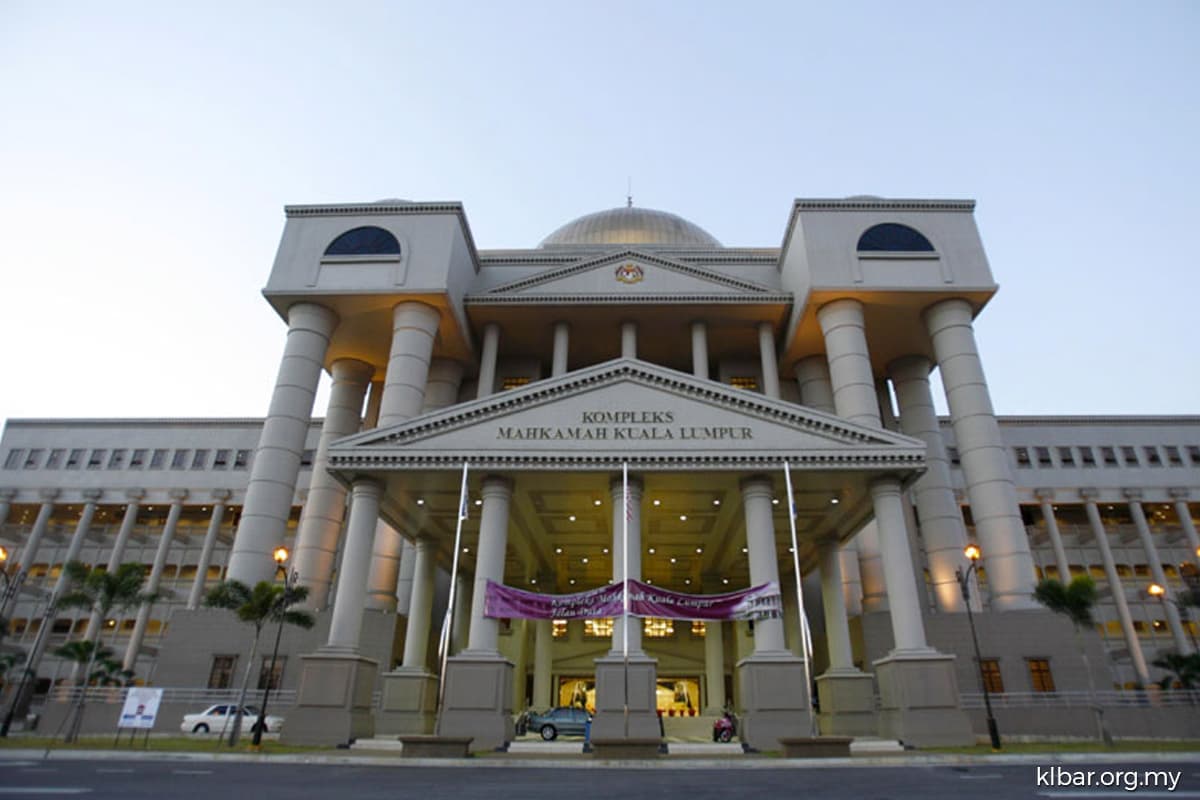
KUALA LUMPUR (March 21): The High Court has set May 11 to deliver its decision on single mother Loh Siew Hong's judicial review challenging the unilateral conversion of her three children to Islam.
High Court judge Datuk Wan Ahmad Farid Wan Salleh set the date following submissions from all parties on Tuesday (March 21).
In August last year, the High Court granted leave (permission) to Loh to challenge the July 2020 conversion of her three children — twin girls who are now 14 years old and a boy who is now 11 years old.
In her application, Loh, among others, is seeking declarations that her children are Hindu (her ex-husband M Nagashwaran's religion prior to his conversion), and that the children are legally unfit to embrace Islam without Loh's approval.
She is also seeking a declaration that her former husband is legally unfit to allow the Registrar of Mualaf to convert their children to Islam without her approval.
Furthermore, Loh is seeking a judicial review to reverse the registration of her children's conversion to Islam in July 2020.
Loh's counsel argues court bound by Indira Gandhi case
During submissions on Tuesday, Loh's counsel A Srimurugan said that it was not disputed by all parties that the children were unilaterally converted, and such conversion was unlawful as determined in M Indira Gandhi's case. The High Court, he argued, is bound by this decision.
In the Indira Gandhi case, the apex court in 2018 ruled that the word “parent” in Article 12(4) of the Federal Constitution is to be interpreted as “parents” if both are still alive.
Under Article 12(4), the religion of a person aged under 18 is to be decided by his “parent or guardian”.
Respondents argue registrar acted in line with state law
Perlis state legal adviser Mohd Radhi Abas — acting for respondents Registrar of Mualaf, state mufti Datuk Dr Mohd Asri Zainul Abidin, and the state government — argued that the Malay translation of Article 12(4) for "parent" refers to "ibu atau bapa" (the mother or father).
He argued that Parliament had carefully used both "parent" and "parents" in the Constitution, and noted that the earlier apex court ruling in R Subashini's case is still good law.
In 2007, the apex court decided that the unilateral conversion of Subashini's son was constitutional, interpreting the word “parent” in Article 12(4) to be singular.
In their written submissions, the respondents also argued that under state law, consent of the mother is not necessary for the children's conversion, and the Registrar of Mualaf had acted in accordance with law.
Haniff Khatri Abdulla, who appeared for the second respondent, namely the Perlis Islamic Religious and Malay Customs Council or MAIPs, argued that Loh — who is a Buddhist — had voluntarily registered the children's religion to follow their father.
Given this, he questioned if the father's act of converting the children to Islam did indeed amount to "unilateral conversion".
He added that the marriage was already in a breakdown when the children were converted, and Loh was no longer in the family home.
However, Srimurugan countered this by arguing that the children were kept from Loh.
According to court documents, Loh said that she had been separated from her children since March 2019, following a domestic altercation where she was injured. She filed for divorce in December that year, and the divorce was finalised in September 2021.
Throughout this period, she obtained several court orders for the sole custody of her children, but was prevented from seeing them by her husband. In March 2021, she secured a final court order giving her full and sole custody of her children. Despite this, she claimed that her children were still kept from her.
Loh was finally reunited with her children in February last year, when the court allowed her habeas corpus application.
Haniff: Authoritative Malay version of Constitution exists
Haniff also argued that there was a Malay version of the Constitution launched in September 2003 by the then King, and argued that this was an act of "prescribing" under Article 160B of the Constitution. This makes the Malay version the authoritative text.
Article 160B states that where the Federal Constitution has been translated into the national language, the King may prescribe such national language text as authoritative.
However, Srimurugan countered that the respondents did not write to the Palace to get an official response on this — neither were there letters from the Attorney General's Chambers (AGC) confirming if there was an official act of "prescribing".
The AGC, which appeared during the leave stage of the proceedings, had withdrawn as amicus curiae (a friend of the court).
Loh was also represented by Dr Shamsher Singh Thind and J Gunamalar.
Read also:
High Court grants leave for mother to challenge unilateral conversion of children
Single mother Loh Siew Hong wins bid to reunite with three children
MAIPs allowed to intervene in custody order granted to single mum Loh
MAIPs says bid to intervene in Loh's divorce petition will not prejudice Loh, children